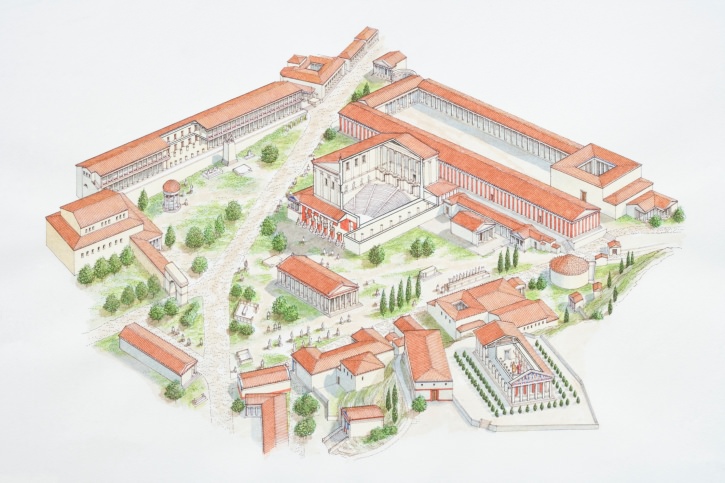City-States Give Rise to Attica
Comments Off on City-States Give Rise to Attica
 Greece’s Dark Ages were marked by two significant events in Ancient Greek history. The first event was the fall of the Mycenaean empire, which meant the destruction of a unified system of ruling power for those living on mainland Greece. The second was the mass migration of the inhabitants of Greece to other locations throughout the Mediterranean. The reason this time period is called the “Dark Ages” isn’t because it was a bad time for the Greeks. It is simply because there is little recorded history of what happened over the years, leaving us in modern times “in the dark” about everything that happened during this span of time.
Greece’s Dark Ages were marked by two significant events in Ancient Greek history. The first event was the fall of the Mycenaean empire, which meant the destruction of a unified system of ruling power for those living on mainland Greece. The second was the mass migration of the inhabitants of Greece to other locations throughout the Mediterranean. The reason this time period is called the “Dark Ages” isn’t because it was a bad time for the Greeks. It is simply because there is little recorded history of what happened over the years, leaving us in modern times “in the dark” about everything that happened during this span of time.
As Greece’s Dark Ages came to a close, a new governmental system arose. Inhabitants of different villages banded together to create governmental units known as city-states. For years, the rulers of each individual village were brought to power based on their wealth and the nobility of their family. However, the Monocratic system of ruling was slowly replaced as towns banded together under unified city-states. While city-states were becoming the norm across Greece, the most significant impact of the creation of city-states was the development of the area of Greece known as Attica. It was in Attica that the city of Athens developed and rose to power.
Attica as a Political Power
Villages most likely banded together into city-states out of necessity rather than the interest of the village. While the aristocratic rulers were reluctant to give up the control of their own villages, they saw the city-state as way to share resources and offer protection to citizens against other settlements looking to amass more land. Attica was experiencing a population boom, specifically among the lower-class citizens. Additionally, the increase in trade networks in the Mediterranean led to economic gains. As more of the middle and lower-class people began to amass their fortunes, power slowly shifted leaving the ruling class vulnerable.
Because of the shifts in economics and the growth of the lowers classes, the nobles knew that they needed to band together to keep order among the settlements. The region of Attica was most likely formed for these reasons. The Mycenaeans no longer ruled the land, and without an infrastructure in place, the Ancient Greek people were subject to not only being thrown into anarchy by the burgeoning lower classes but they were at risk of losing their land by being pushed out by foreign invaders.
A Shift Among the Nobles
To appease the nobles in the transition to a city-state from individually controlled settlements, special arrangements were made to make sure those currently in power maintained some of their authority. The men of the city-states were granted “citizenship” of the entity, which entitled the men to freedom of speech, a right to vote, and access to a court system to resolve disputes. However, to make sure the aristocrats maintained some of their power, it was stated that you could only hold public office if you had a certain amount of wealth or owned a specific amount of property. These changes among the classes helped to build an expansive political region (Attica), which soon became home to a powerful city – Athens.
Categorized in: Ancient Greek History
This post was written by Greek Boston





